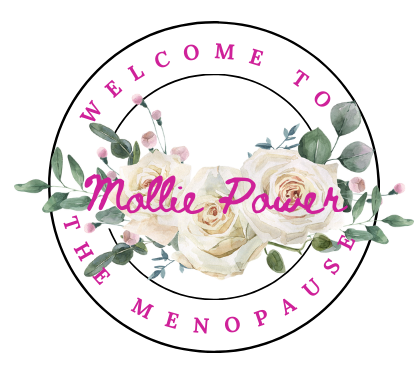
I’m going to set the stage with a bit of context on what we generally consider ‘normal’ menopause. Now, menopause is this natural transition in life that typically occurs between the ages of 45 and 55. It symbolises a significant shift in hormone levels and reproductive capabilities for people assigned female at birth (AFAB).
That’s going to include understanding the variations of menopause. Not every females experiences menopause in the same window of time. There are cases of early menopause, which happens before the age of 45, and then there’s premature menopause, which occurs before 40. While these are less common, they’re important to discuss since they can have additional health implications.
Now, bear in mind, this isn’t just about your period coming to a halt. It’s also about wider hormonal changes in the body that can affect your overall health. For example, as menstruation wanes, oestrogen levels — a key hormone in the female body — decrease, which leads to a number of physiological changes beyond fertility. These can range from hot flashes to shifts in mood and much more.
Don’t worry too much about the specifics just yet. You’re going to find out about the roles oestrogen plays in the body and why its decline is so iconic for this life stage in the following sections. Choose something that resonates with you, whether you’re trying to understand your own experience or that of someone else, and follow along as we delve into these intricacies.
Navigating Early and Premature Menopause
In my opinion, understanding the nuances between early and premature menopause is crucial for those experiencing this life stage ahead of the typical timeline. Early menopause, which hits before the age of 45, and premature menopause, occurring before 40, have distinctions worth noting. About 5% of women face early menopause, while premature menopause affects approximately 1%.
Don’t worry too much about these statistics though; they’re just a way to see how common or rare these conditions are. Premature menopause is particularly unusual before age 30, happening in just 0.1% of women. Despite these numbers, if you’re experiencing menopause symptoms at a younger age, you’re not alone.
You might be asking, ‘What causes a woman to enter menopause prematurely or early?’ Many times, the same factors can initiate both. These include medical treatments, such as cancer therapies, surgical removal of ovaries, or certain health conditions affecting the ovaries’ function. Yet, sometimes, there’s no identifiable cause, which can be the case for up to 50% of individuals.
Choosing something that resonates with you might not be an option when it comes to the causes of early or premature menopause. You can always adjust your approach down the road, though. Adjusting to the reality of this condition involves recognising these triggers and being proactive about your health. A lot is happening very quickly when menopause starts earlier than expected, so staying informed is key.
This isn’t just about a cessation of menstruation; it’s also about the impact on your overall well-being. Your ovaries stop producing eggs, and oestrogen levels drop significantly, marking the end of your reproductive years. The symptoms of early and premature menopause often mirror those of typical menopause, including hot flashes and mood changes, which I’ll dive deeper into in the next section.
Identifying Signs and Diagnosing Early Onset Menopause

You may start having irregular periods as an early indicator of menopause. These changes can occur years before your final period. Common alterations include longer or shorter cycles, spotting between periods, or changes in the flow and intensity of menstrual bleeding.
It’s not just about irregular periods; there are other signs too. The onset of early or premature menopause often brings a host of other symptoms that you might recognise as typical for menopause. These include hot flashes, night sweats, vaginal dryness that can cause discomfort during intercourse, a frequent need to urinate, increased UTIs, sleep disturbances, and a range of emotional changes including mood swings and anxiety.
More symptoms to look out for cover a wide spectrum of bodily changes. You might experience dry skin, eye, or mouth, breast tenderness, a rapid heartbeat, headaches, muscle and joint pain, shifts in your sex drive, difficulty focusing, memory lapses, and even changes in body weight and hair texture.
If such symptoms appear before you’re 45, it’s vital to talk to a healthcare provider. The process for diagnosing early or premature menopause can involve discussing menstrual regularity, your family’s menopause timeline, a physical examination, and blood tests to measure hormone levels. Furthermore, your healthcare provider may want to rule out other medical conditions, like thyroid issues, that could be causing these symptoms.
Understanding the early signs and securing a diagnosis is crucial for managing the condition effectively, which leads to its management. Treatment often varies based on the underlying reasons for the menopause onset. We’ll explore this in detail in the following section.
Addressing the Impact and Managing the Symptoms

Navigating the challenges of early or premature menopause can feel overwhelming, but you’re not without options. The right treatment can drastically improve your quality of life. Hormone replacement therapy, or HRT, often takes the spotlight. It’s designed to replenish some of the hormones your body is no longer producing in abundance, which may help ease those uncomfortable symptoms and mitigate health risks.
However, HRT isn’t a one-size-fits-all remedy. It’s essential to have a candid conversation with your healthcare provider to weigh the benefits against potential risks, especially if you have a history of certain medical conditions like breast cancer.
Don’t let the absence of oestrogen lead you to despair. Early or premature menopause significantly increases your risk for conditions such as osteoporosis and heart disease, but proactive management with your healthcare team can help protect your health.
If you suspect that you’re perimenopausal or menopausal, and your symptoms have started to interfere with your quality of life, please seek medical help from your GP, practice Nurse or your local Pharmacist. Getting advice early can help reduce the impact perimenopause and menopause have on your health, relationships, and work.
Your Story is the Star! Share Your Experience with Us!
Welcome to The Menopause
In the tapestry of stories, yours adds the most vibrant hue! After immersing ourselves in the latest post, we are not simply curious – we are excited to be part of your story.
Did a particular point hit close to home? Or do you have a unique take that is waiting to be unveiled? Let us turn this space into a treasure trove of diverse experiences.
Do not be shy—drop a comment below and let us kick off a conversation that resonates with authenticity. Your voice is the melody in our symphony of stories, and we cannot wait to hear your insights!
Here is to sharing, connecting, and weaving our narratives together!
Cheers to your story, beautifully told!
